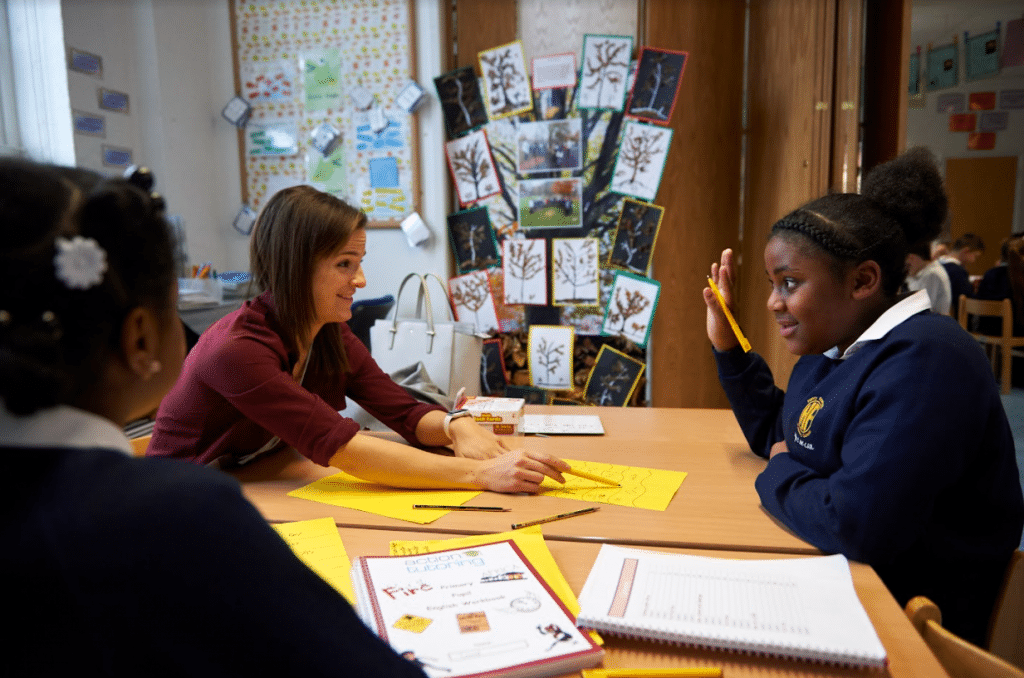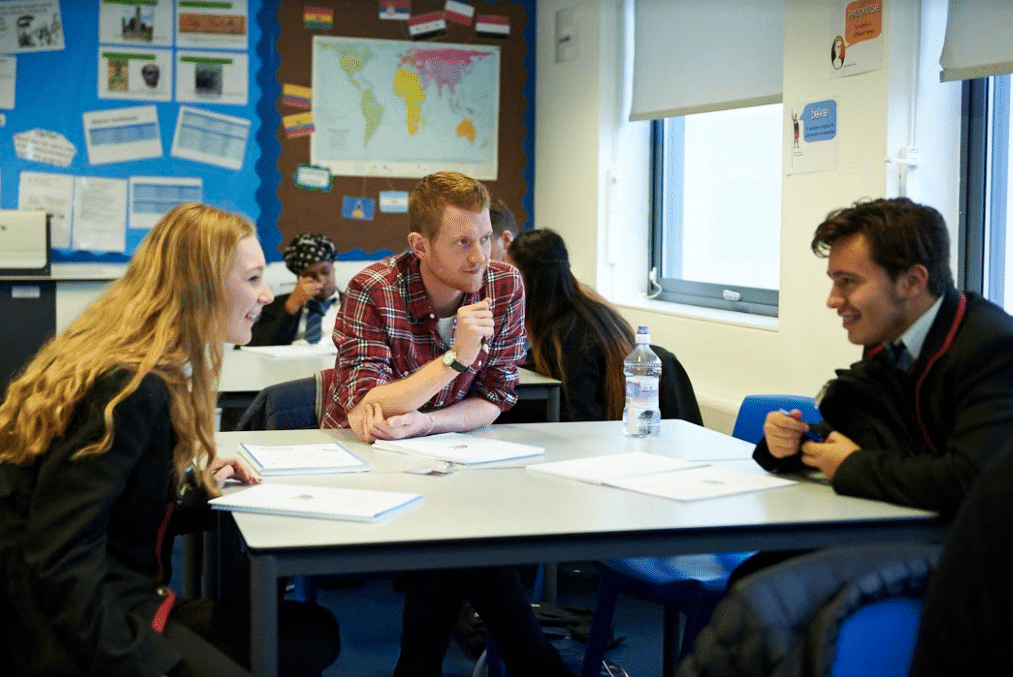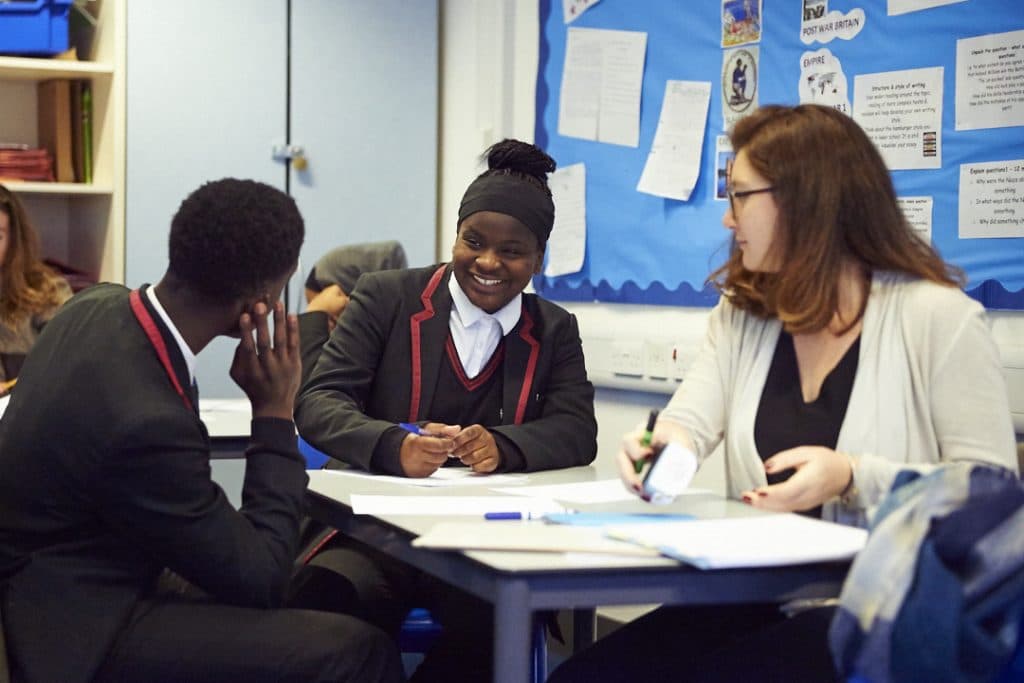What does the EPI report show about the impact of the pandemic on disadvantaged pupils?
17 February 2022
The Education Policy Institute (EPI), an education policy think tank that aims to promote high-quality education outcomes through research and analysis, has released a significant report highlighting the impact of the pandemic on disadvantaged pupils.
The report studies the education gap in 2020 at a national level and among varying levels of disadvantage. The findings help us better understand the inequalities in education and the importance of taking the necessary measures in order to alleviate the concerning gap.
What do the EPI findings reveal about the disadvantage gaps?
The disparity in academic performance is one of the most critical challenges our education system currently faces in England.
The gap between disadvantaged pupils and their peers at key stage 2 (primary school) and key stage 4 (secondary school) is a key measure to assess pupils’ performance. Typically, indicators of attainment gaps at both primary and secondary levels have been based on comparing the percentages of pupils in each group achieving an expected standard – specifically, expected standard in reading, writing, and maths at the end of key stage 2, and five good passes including English and maths at GCSE.
This education inequality is demonstrated in the EPI findings. Specifically, the report shows that the gap in GCSE grade attainment between pupils from low-income families and their peers has not improved in the last decade. Instead, poverty levels have now risen due to the pandemic and more disadvantaged young people are unable to receive the academic support they need in order to catch up.
If you’re a child from a low-income family, you’re less likely to achieve the GCSE grades needed to progress to further education, employment or training. The attainment gap particularly increased for pupils in college and sixth form in 2020: disadvantaged young people are now 3.1 grades behind their more affluent peers, ((COVID-19 and Disadvantage gaps in England 2020)) compared to 2.9 grades in 2019.
The EPI fears that the disadvantage gap in education may widen further in schools as more and more pupils fall into longer term poverty. The persistent rising of poverty among disadvantaged pupils is linked with the stalling of progress in closing the attainment gap. This makes the question of increasing social mobility more urgent than ever.
‘’Worsening poverty has had what the EPI report is right to call a ‘decisive’ impact on the education of children and young people. 4.3million children – or nine in a classroom of 30 – are living in poverty. This speaks of untold hardship endured the length and breadth of the UK.’’
Dr Mary Bousted, Joint General Secretary of the National Education Union
Making sure disadvantaged young people are academically supported is the first step towards ending the cycle of poverty. Action Tutoring partners with schools in England and with the help of our motivated volunteer tutors, delivers tailored and personalised support to disadvantaged pupils across the country.
We are proud to support a strong community of inspiring volunteers, dedicated to giving disadvantaged pupils the opportunity they deserve to thrive in life.
Read more: Achievement in the face of adversity – celebrating GCSE results!
How can you help?
The government is being called on to prioritise closing gaps in attainment for the most vulnerable pupils in disadvantaged areas of the country.
However, their plans to reduce education inequalities are only possible if we all contribute by offering our help during these difficult times. It is our collective responsibility to ensure disadvantaged children are supported and given the opportunity to progress in their education. Volunteering has the potential to make a real difference in the lives of vulnerable communities.
We can all be part of this positive change if we spare an hour each week to volunteer as a tutor in English or maths. Let’s help pupils achieve their full potential.
If you are unable to volunteer, you can still offer your help by sharing our mission on social media. Small acts of support can lead to a great positive change!
Three ways our volunteer tutors support children’s mental health
10 February 2022
Children’s Mental Health Week takes place on 7-13th February this year and is run by Place2Be charity. This year’s theme is Growing Together, focusing on how we can support each other in growing emotionally and building a safe support system around us.
Being mentally healthy involves feeling good about ourselves, forming and maintaining positive relationships with people around us, and being able to feel and manage a wide range of emotions. At Action Tutoring we believe the emotional well-being of pupils is as equally important as their academic progress.
Growing emotionally requires us to move beyond our comfort zone and this can be particularly challenging if we are alone. Volunteering is a two-way street: it can make a real difference to the lives of others who need additional support, and at the same time it gives us the opportunity to meet people who motivate and inspire us. This way, we feel part of an empowered community and continue to grow personally and professionally.
This week we encourage everyone to reflect on how to help each other grow and offer support to those who need it the most. Emotional growth is a gradual process and everyone experiences it in different ways.
Studies show that disadvantaged pupils are more likely to suffer from poor mental health after Covid-19; in particular, one in six disadvantaged children have a diagnosable mental health condition.
All of our volunteers are committed tutors who empathise and understand the additional struggles of pupils from low-income families. Prioritising mental health issues early on is incredibly important in nurturing confident individuals who will thrive in life.
How do Action Tutoring volunteers support children’s mental health?
Active listening and healthy ways of communication
We encourage all our tutors to actively listen to pupils’ concerns and make sure they feel supported, confident and heard. One of the most valuable things our tutors do is approach mental health issues in a non-stigmatising way. Our mission is to make everyone feel included, no matter their socio-economic status or background.
However, it is important to remember that while our volunteers are there to listen and empathise, they are not experts in mental health issues. Empathy involves recognising what pupils are feeling, trying to understand their perspective and never judging emotions and experiences.
That’s why tutors avoid giving advice or trying to resolve issues on their own. If a child shares anything that is particularly concerning, our volunteers communicate directly with our Programme Coordinators and follow safeguarding procedures accordingly.
Creating a welcoming and safe learning environment
Action Tutoring volunteers have the support and resources they need to make tutoring sessions welcoming and safe for all pupils. This helps children feel comfortable to share their thoughts, experiences and opinions without the fear of negative feedback or criticism from their tutors. A safe learning space, with clear boundaries and effective communication, also allows tutors to handle sensitive topics more confidently.
The cooperation between our volunteer tutors, Programme Coordinators and teachers has allowed us to help pupils in the best way possible and ensure their mental wellbeing.
Positive role models
Action Tutoring volunteers also serve as positive role models for our pupils. It’s extremely important for disadvantaged children to interact with understanding, calm and honest adults. These characteristics motivate pupils to mirror similar attitudes and feel more confident, so that they can open up and engage during the tutoring sessions.
Cohen is in Year 11 at Seaford Head School in East Sussex. His tutor, Jill, has worked with him and another pupil in English since the start of the programme. This is what Cohen had to say about his sessions:
‘’My tutor is ten out of ten! It’s been nice to talk to someone who’s genuinely there to help me.’’
How can you help?
Volunteer with us
Join our volunteering community and become a tutor in English or maths. You can choose to help pupils by tutoring online or in-person. It’s only one hour a week, and your support is important now more than ever.
Receiving judgement on academic performance can seriously impact a child’s mental health. By getting involved, your pupils will not only receive academic help, but they will also feel emotionally supported and grow in confidence.
Volunteer tutors make pupils feel less alone and increase their confidence, so that all children can enjoy the process of learning.
Spread the word
We would love your support to help us raise awareness and motivate more people to get involved. Every volunteer provides tremendous support to our cause and helps pupils during these challenging times.
Do you know someone who can volunteer as a tutor? Spread the word by sharing our blog on social media!
Make a donation
If you don’t have the time to tutor with us, donations are also a great way to change the future of disadvantaged pupils. Every donation we receive allows us to reach out to even more young people and make a difference in their lives.
Whether you are making a donation, volunteering with us or using social media to shine light on the importance of mental health and wellbeing of pupils, we are incredibly thankful. Your continuous support is vital for our mission!
Read more: Action Tutoring online or in-person programmes
Five things I’ve learnt while on placement with Action tutoring
7 February 2022
Student Volunteering Week is an annual event that celebrates the impact of student volunteers. This year the week will be taking place from 7th – 13th February 2022. This is a brilliant opportunity to demonstrate how social action creates positive change.
Our student volunteers inspire us, and so we wanted to share some of their stories this week. Elsie volunteered with Action Tutoring for one term as part of a university placement module.
I am a third year English Language student studying at the University of Liverpool. Whilst on placement with Action Tutoring this year, I have had the privilege of tutoring a handful of pupils aged 9-12 in English, at three schools across the country, both online and face-to-face.
My university placement with Action Tutoring has been highly rewarding, and I would love to encourage more students to be part of this experience. In case you are unsure, here are five of the most invaluable lessons I’ve learned from my time tutoring.
The importance of communication, and how you communicate with the pupils
Using an online platform can sometimes bring technical hurdles, meaning that clear, loud, and upbeat speech is more important than ever ensuring a successful and well-understood lesson. One of my Programme Coordinators explained to me the importance of pitch when speaking to the pupils.
Different pitches can indicate whether they are receiving praise for their hard work, or whether they are being reminded to maintain concentration. Name use is another important communication technique, particularly during online sessions. Using the pupil’s name shows that you are taking an interest in what they have to say, indicating that you value them as an individual.
Time management and planning is essential
I knew that becoming a tutor would mean improving my time management skills to fit around university lectures. Action Tutoring provides great templates for each week, which have everything you need to lead the session. I would advise reading through these templates thoroughly in advance, especially the texts.
It is important to remember time management within the sessions, too. They can progress a lot faster or slower than expected, depending on how well the pupils are understanding the content, so it is important to know when to adapt a lesson to suit this. Always have additional activities prepared for the end of the session in case you finish with spare time!
Brain breaks are your best friend!
A great session should always involve a brain break. That’s what my Programme Coordinator taught us; to combat attention levels dipping half way through the session. A brain break is a short activity which moves the focus away from the lesson content, to a more fun and often fast-paced game or challenge.
My pupils really enjoyed hang-man or memory games, but other ideas could include word-bingo or scrabble. I learnt that using trickier words from the text within the games was a great way to solidify a new word into the pupils’ vocabulary.
The importance of non-verbal communicators
During my placement with Action Tutoring, I learnt how important other factors; such as enthusiasm, body-language and confidence; are to engaging and building rapport with children.
Eye-contact is a really great way to show a pupil you are giving them your full attention, valuing what they have to say, and checking their understanding.
A pupil is more likely to lose attention if you are not giving them regular eye-contact, and this works well alongside using their name too. Pupils may also give off non-verbal cues which indicate if they are understanding the session, so be sure to look out for your pupil’s body language and enthusiasm levels.
The importance of tutoring and the impact it has on the pupils
All of the pupils I tutored improved their English skills as we progressed through the weeks. It was amazing to watch their confidence levels grow as they became more comfortable in challenging themselves and building upon skills gained from previous sessions.
They enjoyed themselves as well. One pupil told his teacher after a session that he thought tutoring was ‘going to be boring…but it was actually really fun!’ This kind of feedback is what makes tutoring so worthwhile.
Blog by Elsie Holmes
We offer in-person tutoring programmes and for those with busy schedules, our online programmes are available so you can still get involved and be a part of our mission. Join our inspiring volunteering community today!
Achievement in the face of adversity – celebrating GCSE results!
2 February 2022
At Action Tutoring we are proud to work with inspirational volunteer tutors, who support disadvantaged children in English and maths. With their help, we work towards our mission to narrow the attainment gap between pupils from low-income families and their peers.
Education equality is at the heart of our mission, and the achievements of our pupils last year clearly highlight the value of tutoring in supporting this.
GCSE results 2021 – what does our data show about the academic performance of pupils?
Preparing for GCSEs provides pupils with a solid foundation in a variety of subjects. They serve as an educational stepping stone, giving pupils the opportunity to unlock access to higher education.
Pupils who attended at least eight sessions with an Action Tutoring volunteer in 2020/21 out-performed the national GCSE results for disadvantaged pupils.
Thanks to the hard work, resilience and commitment of our incredible school teachers and the continuous support of our volunteers, we are proud to say that 81% of our pupils achieved grade 4 or above in English and 80% grade 4 or above in maths!
These percentages were calculated using the GCSE results we received from 30 out of 49 of our partner secondary schools. This is a lower response rate relative to previous years and so whilst being very positive, these results may not be fully reflective of the overall picture.
Action Tutoring was able to continue supporting thousands of pupils last year, by converting to home-based tutoring when school closures were suddenly announced in January 2021. Online learning has been a valuable tool, allowing us to offer personalised and tailored support during the most challenging times.
Due to Covid-19, GCSE exams were cancelled in 2020 and 2021 and replaced by centre-assessed grades (CAG) and teacher-assessed grades (TAG) respectively. The different methods of awarding grades means they are not comparable with previous years; however a higher proportion of pupils earned grades 4 and above in each year relative to 2019.
Results for Action Tutoring’s pupils follow this UK-wide pattern: before the pandemic, around 50-55% of disadvantaged pupils passed GCSEs whereas in 2020/21, more than 65% did. From the results we have from the pupils supported by Action Tutoring, the proportion is similarly much higher than in previous years.
These results reinforce the idea that tutoring programmes lead to increased academic performance, and we see on the ground that it improves self- confidence and motivation for learning. This achievement wouldn’t be possible without the hard work of our dedicated Programme Coordinators, who ensure that all of our tutoring sessions are well-structured and run smoothly.
We believe good grades have the potential to open doors and provide lifelong opportunities. A grade 4 in English and maths at GCSE is essential to pupils continuing their education, or going on to future employment or training. GCSEs not only assess the academic ability of pupils, but also offer them transferable and significant life skills for their future.
As Action Tutoring CEO Susannah Hardyman says:
It’s precisely because grades open doors that GCSE results matter so much.
To better understand the importance of tutoring in lowering the attainment gap, watch the video below.
How can you help?
This year’s pupils sitting their GCSEs will still be affected by the disruption of school closures. Your help is vital so we can continue to deliver sustainable and effective support to young people who need it.
Could you volunteer for an hour each week and join our volunteering community? Your contribution is more important than ever.
Do you know someone who can volunteer with us? Spread the word by sharing our blog on social media!









